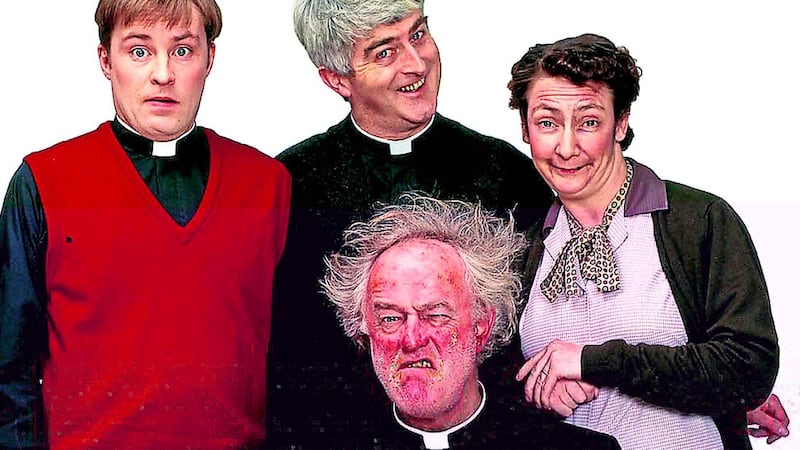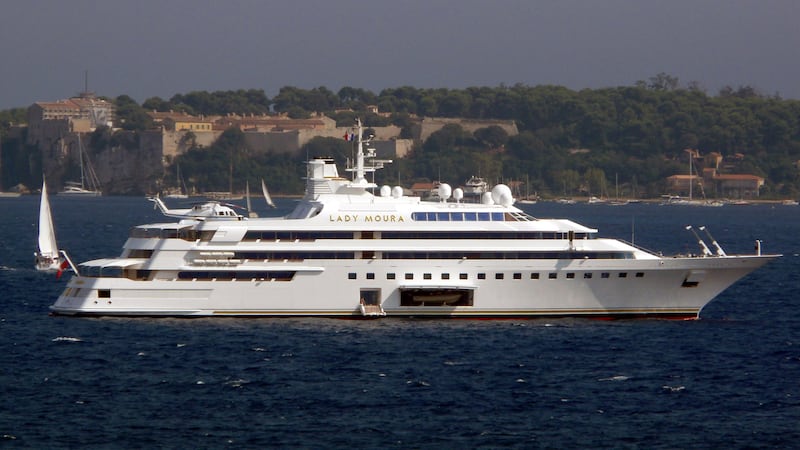BEFORE last Monday I had never been to a Moravian Church.
But on Monday evening, along with other Christians from many churches in north Belfast, I made my way to Cliftonville Moravian Church on the Oldpark Road.
January 18 to 25 is designated as the Week - or Octave - of Prayer for Christian Unity and across the world there are services and special events to mark it.
But while those services of worship are good and valuable in themselves there is limited point if they stand alone, and are not signs of and part of an ongoing commitment to work together across the Churches.
Thankfully there are many examples of that local commitment to the building of relationships and the development of understanding.
The Clonard pilgrims go out Sunday by Sunday to churches across the spectrum of denominations.
In Joyful Hope is an initiative whereby members of different traditions meet to worship and celebrate Communion, insofar as each tradition allows.
The 4 Corners Festival aims to inspire people from the four corners of Belfast to transform the city for the peace and prosperity of all.
I know that the Benedictine monks in Rostrevor pray for me regularly and not just for me, but also for leaders and members of many in traditions different to their own.
The Sisters of the Cross and Passion in Drumalis have blessed me with kindness, hospitality, wisdom and s p i r i t u a l direction.
I am a Methodist minister. I am a Methodist by birth and by conviction.
I was once introduced at an event with the words: "If you cut her in half, like a piece of rock you would find the word Methodist running through her."
I am evangelical, I believe that Jesus died for all people and that all people need and are invited into a living relationship with Jesus.
My experience is that that relationship with Jesus changes everything.
I believe that faith should be lived out - that Christians are not meant to huddle in clubs called churches but are meant to make a difference in their communities. I am also ecumenical.
The word "ecumenical" can be used in different ways.
For Fr Jack Hackett in Father Ted, the phrase "that would be an ecumenical matter" was a way of getting out of difficult conversations.
For some, "ecumenical" is an insult because for them it implies compromise or the watering down of essential truth.
Others use it meaning a hope for a visible, s t r u c t u r a l unity in the Church; they look for a day when there would be no more denominations.
For others, and this is where I stand, ecumenism describes a commitment to work for a different type of visible unity; a unity between Christians that is more like a multi-coloured coat, in which there are different denominations and traditions but we are one in a common commitment to God and a common commitment to each other.
While it's not impossible, I cannot imagine ever becoming a Presbyterian, a Roman Catholic or, indeed, a Moravian, but I do pray for and work towards unity that is based in a common commitment to Jesus, and seen in respect for each other, and a unity of purpose in our common mission to let the love of God be seen in the world.
While we could discuss the degree to which the conflict in Northern Ireland is a religious one, I have no doubt that a way forward towards peace demands a Christian response and more than that a response from Christians across the Churches.
In the language of this article, peace-building demands an ecumenical response.
There will not be lasting peace while sectarianism stalks our streets.
There is the obvious sectarianism, like the paint thrown at the door of St Mary's Star of the Sea Church last September.
And then there is the subtle, insidious sectarianism heard in 'jokes' and throwaway comments that remain unchallenged.
Sectarianism is fatally undermined when relationships are built.
An ecumenism that values a tradition different to itself and builds relationships will be integral in peace-building.
Last Christmas members of The Church of the Good Shepherd in Monkstown, which is a united Church of Ireland and Methodist Church, worked with St Oliver Plunkett Parish in Lenadoon to make two knitted Christmas trees.
As Liz Feely from Monkstown put it: "We have discovered through our meetings together that in spite of our differences, our two parishes have much more in common.
"Both are situated in working-class housing estates with defined paramilitary links; we have lots to learn about each other and ourselves; probably the most important thing is that we worship Jesus Christ as Lord."
Over these last weeks of the Haass process we have seen how we struggle to find a peaceful way forward.
In order to build the peaceful society, which I believe most people long for, we will need to learn to listen, to forgive, to be reconciled with one another, to work together even when we differ.
We must learn to seek the common good. And we haven't always done this as we should, but Christians have the potential to model what it is to be reconciled; to forgive, to work together when we differ.
In relationships we can begin to understand what others believe, and still differ, but remain friends.
I differ fundamentally with some friends from other traditions.
I am a woman who is an ordained minister, and have friends from my own and other Christian traditions who believe that it is theologically wrong for women to be ordained.
We differ and we respect each other's views, and still work together for the sake of God's Kingdom.
We need an ecumenism which is more than skin deep but in which relationships are so deep that we can say "I think you are wrong in that" and still remain friends; an ecumenism in which we can be honest about the significant differences that there are between different Christian traditions; we need relationships with each other marked by generosity and kindness.
In Evangelii Gaudium Pope Francis writes: "I especially ask Christians in communities throughout the world to offer a radiant and attractive witness of fraternal communion.
"Let everyone admire how you care for one another and how you encourage and accompany one another."
I can't think of better words on which to end. Building peace may, after all, be an ecumenical matter.
* The Rev Dr Heather Morris is President of the Methodist Church in Ireland


